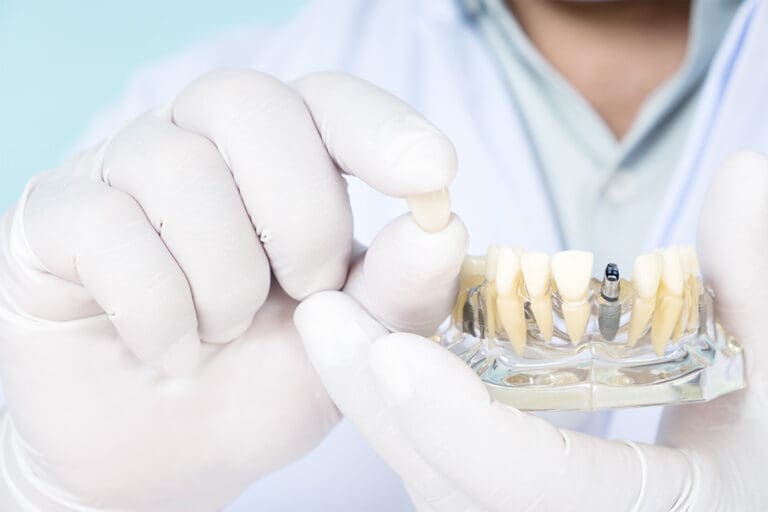Thumb-sucking and pacifier use are common forms of self-soothing behaviors for young children. While these habits may offer temporary comfort, they can adversely affect a child’s dental development and overall oral health if they persist beyond a certain age.
At Waban Dental Group, we recognize the challenges parents face in helping their children outgrow these oral habits and embrace a more beneficial oral health routine. In this comprehensive guide, we will explore the impact of thumb-sucking and pacifier use on dental development, discuss the appropriate time for weaning, and share valuable strategies for helping your child transition to healthier habits with confidence.
Thumb-sucking and pacifier use can provide a sense of security and relaxation for infants and toddlers. However, as the child grows, these habits may interfere with normal dental development and cause improper alignment or spacing of teeth. As parents and caregivers, it is essential to understand the potential risks of prolonged thumb sucking or pacifier use and develop a personalized plan for weaning your child from these habits in a supportive and age-appropriate manner.
In the following sections, we will delve into the various considerations surrounding thumb-sucking and pacifier use, focusing on the appropriate age for transitioning away from these habits and the specific techniques and strategies for effective weaning. Additionally, we will discuss the role pediatric dentists play in monitoring your child’s dental development and providing guidance on managing these habits.
Join us in this in-depth exploration of thumb-sucking and pacifier tips, enabling you to guide your child toward healthier oral habits and a lifetime of beautiful, confident smiles.
Understanding the Impact of Thumb-sucking and Pacifier Use on Dental Development
1. Teeth Alignment and Spacing
Prolonged thumb-sucking or pacifier use can cause changes in the shape and alignment of a child’s teeth, leading to crowding, spacing, or improper bite patterns. The pressure applied to the teeth and jaws during thumb-sucking or pacifier use can push the teeth outward or upward, resulting in an open bite or overbite.
2. Jaw Development and Muscle Imbalance
Continued thumb-sucking or pacifier use can interfere with proper jaw development, leading to an imbalance of facial and dental muscles. This imbalance can contribute to speech difficulties, swallowing issues, and changes in facial structure.
3. Impact on Oral Health
Thumb-sucking carries the risk of transferring bacteria and germs from the hands to your child’s mouth, potentially leading to cavities, gum infection, or other oral health concerns. Similarly, improperly cleaned pacifiers can introduce bacteria and germs to the child’s mouth.
Recognizing When to Wean Your Child
While thumb-sucking and pacifier use can be developmentally appropriate for infants and young toddlers, it is crucial to address these habits before they become detrimental to your child’s dental well-being.
The American Academy of Pediatric Dentistry (AAPD) recommends that parents should begin addressing thumb-sucking or pacifier habits and planning to wean their child between the ages of two and three. This timing coincides with the emergence and continued development of primary teeth, ensuring the minimization of potential dental issues.
Strategies for Helping Your Child Transition from Thumb-sucking or Pacifier Use
1. Gradual Weaning and Limiting Access
Gradual weaning is a gentle method for helping your child adjust to the absence of a pacifier or thumb-sucking. Start by eliminating use during specific times of day or activities, progressively increasing restriction until the habit is completely discontinued. Consistency and clear communication are essential for success with this approach.
2. Provide Alternatives for Comfort and Soothing
Offering your child alternative forms of security and comfort, such as a soft blanket or stuffed animal, may help reduce their reliance on thumb-sucking or pacifier use. Encourage your child to turn to these comforting objects during times of distress or anxiety when they might typically resort to their oral habit.
3. Positive Reinforcement
Using praise and encouragement can serve as powerful motivators for your child as they work to overcome their thumb-sucking or pacifier habit. Compliment your child when you notice they have not engaged in the habit, and consider implementing a reward system for reaching milestones in the weaning process.
4. Address Triggers and Underlying Causes
Identify the specific triggers for your child’s thumb-sucking or pacifier use, such as tiredness or stress, and work to address these factors. Creating routines and a calm environment can improve your child’s overall sense of security and potentially reduce their need for self-soothing behaviors.
The Role of Pediatric Dentists in Supporting Your Child’s Transition
Your child’s pediatric dentist can serve as a valuable ally in helping your child transition from thumb-sucking or pacifier use to a healthier oral habit. They can provide personalized guidance on weaning strategies, educate your child on the importance of dental health, and monitor the progress of your child’s dental development.
Regular dental check-ups allow the dentist to evaluate and address any dental issues stemming from prolonged thumb-sucking or pacifier use, ensuring your child’s oral health remains on track.
Conclusion
Assisting your child in transitioning away from thumb-sucking or pacifier use is a crucial aspect of their ongoing dental health journey. By understanding the potential risks of these habits and implementing effective weaning strategies, you can set your child on a path toward optimal dental development and a lifetime of healthy, confident smiles.
At Waban Dental Group, our dedicated team of Boston pediatric dental professionals is committed to providing world-class care and guidance every step of the way. If you have questions or concerns about your child’s thumb-sucking or pacifier habit, please do not hesitate to reach out to our compassionate team for support and advice. Together, we can facilitate your child’s successful transition to a future of radiant and thriving smiles.







